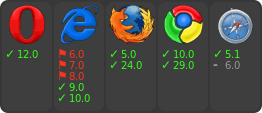minimist
parse argument options
This module is the guts of optimist's argument parser without all the fanciful decoration.
example
var argv = require('minimist')(process.argv.slice(2));
console.dir(argv);
$ node example/parse.js -a beep -b boop
{ _: [], a: 'beep', b: 'boop' }
$ node example/parse.js -x 3 -y 4 -n5 -abc --beep=boop foo bar baz
{ _: [ 'foo', 'bar', 'baz' ],
x: 3,
y: 4,
n: 5,
a: true,
b: true,
c: true,
beep: 'boop' }
methods
var parseArgs = require('minimist')
var argv = parseArgs(args, opts={})
Return an argument object argv populated with the array arguments from args.
argv._ contains all the arguments that didn't have an option associated with
them.
Numeric-looking arguments will be returned as numbers unless opts.string or
opts.boolean is set for that argument name.
Any arguments after '--' will not be parsed and will end up in argv._.
options can be:
opts.string- a string or array of strings argument names to always treat as stringsopts.boolean- a boolean, string or array of strings to always treat as booleans. iftruewill treat all double hyphenated arguments without equal signs as boolean (e.g. affects--foo, not-for--foo=bar)opts.alias- an object mapping string names to strings or arrays of string argument names to use as aliasesopts.default- an object mapping string argument names to default valuesopts.stopEarly- when true, populateargv._with everything after the first non-optionopts['--']- when true, populateargv._with everything before the--andargv['--']with everything after the--. Here's an example:opts.unknown- a function which is invoked with a command line parameter not defined in theoptsconfiguration object. If the function returnsfalse, the unknown option is not added toargv.
> require('./')('one two three -- four five --six'.split(' '), { '--': true })
{ _: [ 'one', 'two', 'three' ],
'--': [ 'four', 'five', '--six' ] }
Note that with opts['--'] set, parsing for arguments still stops after the
--.
install
With npm do:
npm install minimist
license
MIT

